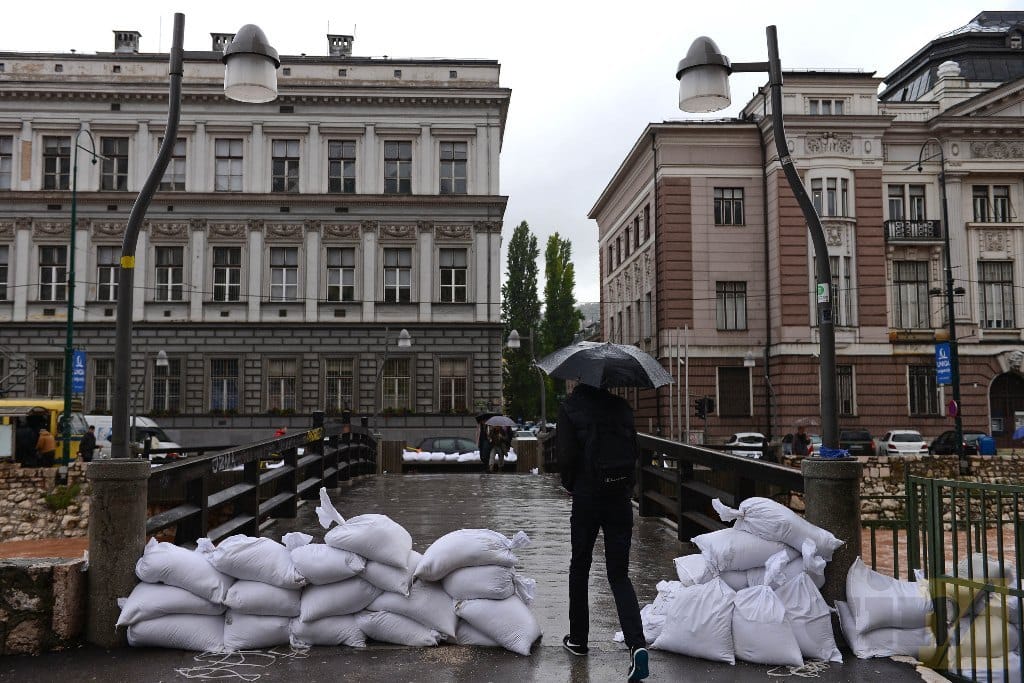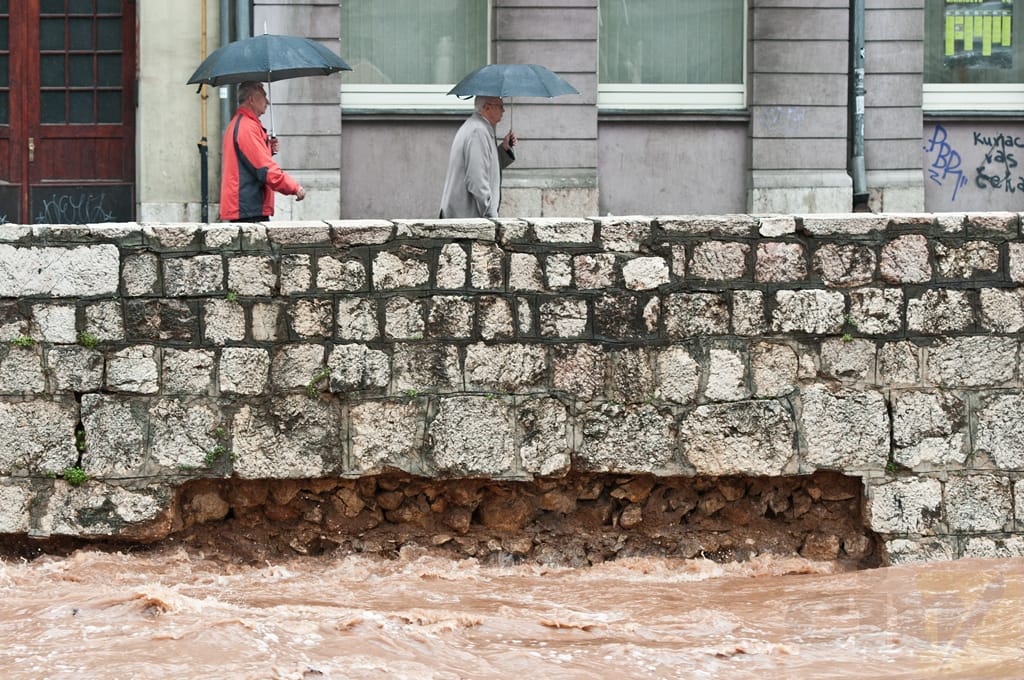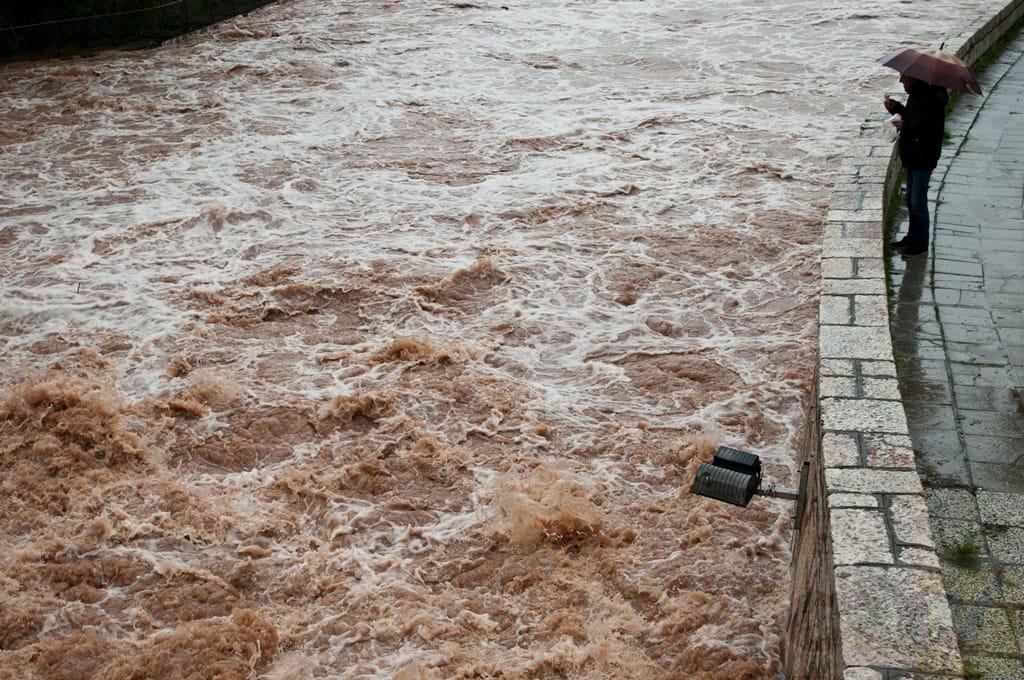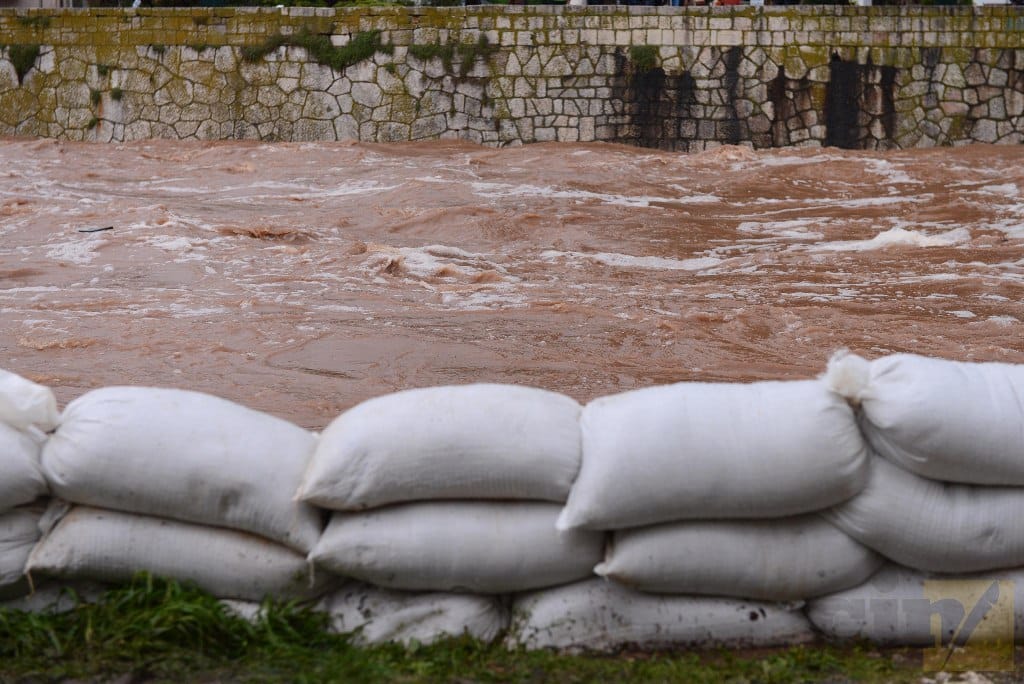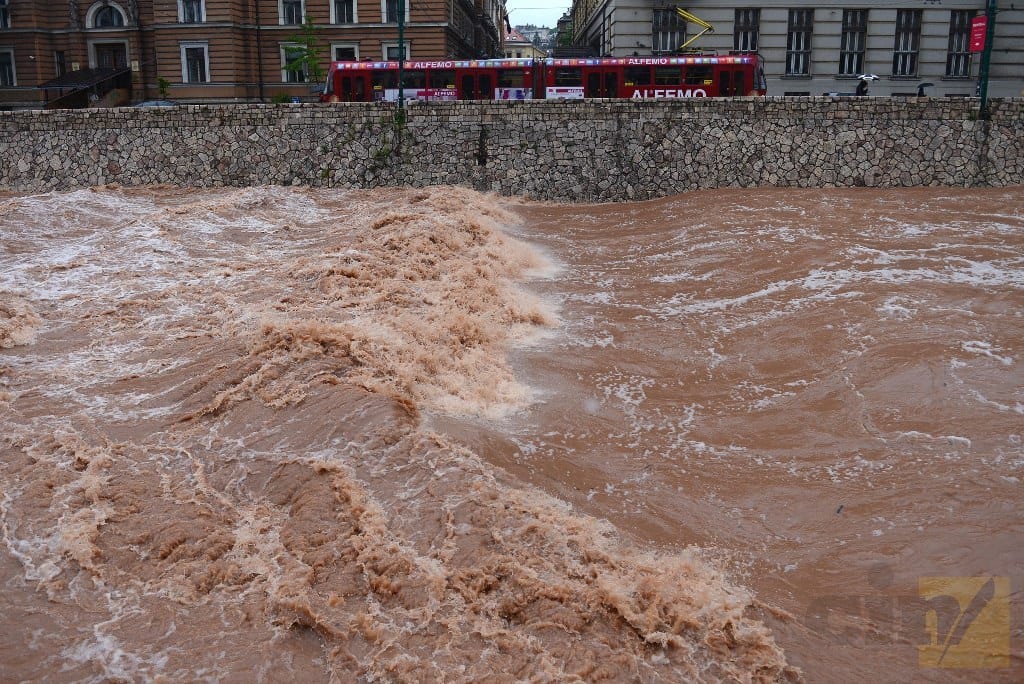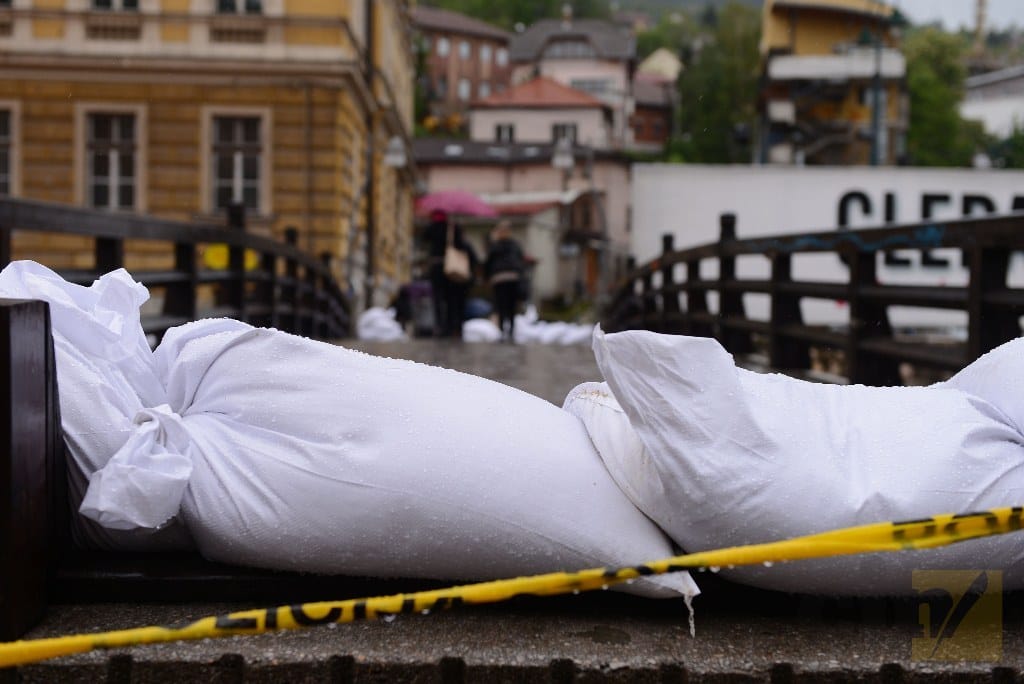The departments of civil defense throughout Bosnia and Herzegovina (BiH) receive millions of KM every year. Still, the protection of citizens is not where it should be.
According to the findings from a Sarajevo-based the Center for Security Studies, the citizens have been left to their own devices and the foreign aid in the face of floods and other natural disasters despite numerous local agencies that purport to serve and protect.
“Nothing is done before something happens. There are no planned activities”, said the Center’s Armin Kržalić. He added that the lessons should have been learned from earlier floods in order to avoid the repeat of a disaster. “Then they’re waiting again for the following three to four years talking how everything is fine, until it rains or something else happens. And then the citizens suffer”, said Kržalić.
He was the team leader for the project of the assessment of the civil defense capacities in BiH. A 2010 document titled The Protection and Evacuation in BiH read that the financing of civil defense in the country is determined by the political organization. Depending on the level of governance, these are budget-allocated funds, money from companies, insurance, humanitarian aid and voluntary contributions. However, no one has a combined figure on how much money has been allocated for civil defense.
According to the study, more than 15 million KM was allocated for the civilian defense agencies of both entities and the District of Brčko in 2009. For example, more than 4 million KM was deducted from the FBiH citizens in natural and other disasters-prevention taxes. In the same year, the FBiH Civil Defense Authority spent 784,201 KM for equipping its departments and special units of civil defense, including paying for the Study for Extinguishing Open Space Fire. It also spent 2,000 KM on the relief assistance in the municipality of Vareš.

Until the beginning of 2009, a lot of unspent money was hoarded at the account of the Federation Civil Defense Authority. Because of the financial crises and the budget deficit, the FBiH government passed a resolution to borrow more than 11 million KM of that money to be paid back within 60 days. By the time the Study was published, more than seven million KM had been returned.
The Center for Security Studies experts say in their analysis that the civil defense does not have an up-to-date and standardized equipment, that the communication equipment is obsolete, that material and technical equipment is lacking and their staff has not undergone appropriate training. In the course of their research they found out that not one civil defense unit has a fully equipped unit for the protection and evacuation from rubble which, as it was said, was worrying because the biggest threats are related to floods, earthquakes and fires.
The study went on to say that money collected annually from tax deductions is more than enough for the equipment and training of the civil defense as well as for the treatment of some of the damages, but “has obviously not been used for the intended purposes”.
Because of the torrential rains in some parts of BiH, the rivers flooded the surrounding areas the day before and today. Parts of Sarajevo Canton, Tuzla, Central Bosnia Canton, Zenica Doboj Canton, Doboj region and Bijeljina are under water. Some of the bridges have been destroyed or temporary closed; the same goes for several roads and the railway in Doboj. Some parts of the country have been left without electricity and the citizens have been evacuated.
Civil defense teams are on the ground, especially in Maglaj where the situation is critical. According to local citizens, the level of water rose by one and a half meters, which led to the flooding of all cars on the streets. The water is entering apartment buildings and tenants are moving to the upper floors and in corridors.
“You cannot move, nor we have any information. There’s no power, no telephones, the cell phones are about to die. We don’t know how to charge them. The level of water is on the increase from one moment to another. We can just wait. We pray for the precipitation to stop, but the situation is alarming,” said for CIN Maglaj resident Azra Terzimehić whose building is around 300 meters away from the Bosna River.
“It’s like as if the river is passing by the building. Indeed, no one can recall an event like this,” she said.
Maglaj resident Nermin Dedukić who lives in Sarajevo is trying to spread the news about the situation in the town and connect the relief effort with those in need. “Water is reaching the second floors of houses. The people from town has no place to go to, so they are constantly sending SOS requests to Sarajevo for help with helicopters. There are also those who are stranded. There’s a stranded family in the March 1 Street. There’s no water, electricity, telephone…“, said Dedukić.
In the Tuzla area those leaving along the river bed of Jala are at the biggest risk. Slobodan Ikić, a resident of Simin Han, told CIN in a telephone conversation that the surrounding houses are flooded and the bridges are closed. He said that this was not the first time the river flooded his village, but the residents have never been compensated for the damage.
“When the floods happen, the always come purporting to help… No one has ever provided us with even I KM, imagine!” They make a list and that’s the end of it”, said Ikić.

According to an efficiency audit in FBiH, the floods that have been frequently targeting the entity are causing huge material damage. According to an estimate, the damages from the 2010 flooding were around 100 million KM.
“It should be noted that the floods has been targeting the same area almost year in, year out”, said the auditors in the Efficiency Audit of Flooding Prevention in FBiH. The report stated that the floods show up suddenly because there is neither adequate prevention nor sufficient investment. “Out of the total amount of money collected from water tax deductions, just 25 percent is used for flooding prevention”, wrote the auditors.
According to the records collected by the CIN, the state, entity and cantonal governments have shared amongst themselves nearly 97 million KM of the emergency budget money in the past four years. Just 740,000 KM of that money was spent on flood relief. In 2010, Tuzla, Central Bosnia, Posavina and Kanton 10 have allocated 540,000 KM for flood relief of their municipalities, while West Herzegovina Canton allocated 200,000 KM for natural disasters relief in 2012.
In a telephone conversation for CIN, the Sarajevo Canton minister of spatial planning and environmental protection Zlatko Petrović said that the people can be reimbursed after a state of emergency is announced. But this would not apply for those who have built their houses without the building and zoning permits, like in Osjek on the outskirts of Sarajevo. Sarajevo Canton authorities have not yet announced the state of emergency.
The weather report is not hopeful. It is expected that the rain will continue in much of the country until the end of this week.





